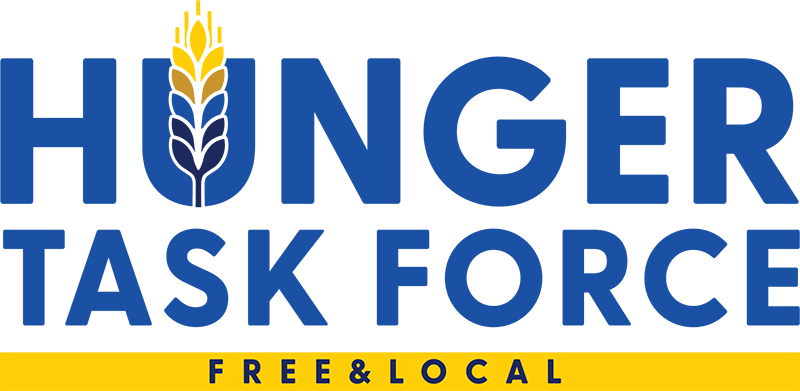A Federal Budget Update from Dr. Reno Wright, Public Policy & Advocacy Director
Written by: Dr. Reno Wright, Hunger Task Force Public Policy & Advocacy Director
[email protected]
———————————————–
In July of this year, Congress narrowly passed the One Big Beautiful Bill Act (OBBBA) during the budget reconciliation process and it was signed into law on July 4, 2025. While it introduced some tax cuts and spending changes across many sectors, it also included significant changes to vital federal nutrition programs – particularly SNAP (known as FoodShare in Wisconsin) and Nutrition Education (SNAP-Ed) that provides programming for low-income children, seniors, veterans, people with disabilities and families to help them make healthier food choices and live more active lifestyles.
SNAP is the first line of defense against hunger. More than 700,000 people in Wisconsin rely on the benefits to help feed themselves and their families. Unfortunately, because of these budgetary changes, it is estimated that approximately $186 billion will be cut from SNAP over the next 10 years and tens of thousands of Wisconsinites could lose some or all their food benefits (many of whom only receive about $160 per person per month). Additionally, the SNAP-Ed program will no longer receive federal funding after September 30 of this year. This cut will impact more than145,000 Wisconsinites who received nutrition and physical activity education. The termination of SNAP-Ed is a $467,000 funding loss for Hunger Task Force.
Additional changes to SNAP include the following:
- Increasing administrative costs for states from 50% to 75% beginning October 2026. This will cost Wisconsin an additional $51 million per year to implement.
- Shifting programming costs to states for the first time based on error rates beginning October 2027. This will cause some states to pay between 5% and 15%. While Wisconsin currently has an error rate that exempts the state from paying these costs, future changes in state’s error rate could mean adding up to $207 million annually to the state’s budget.
- Expansion of Work Requirements by increasing the upper age from 54 to 64 and requiring parents or guardians of children 14 and older to meet the work requirement.
- Legal Immigrant Restrictions meaning refugees, asylees and those in the United States for humanitarian reasons will become at risk for food insecurity due to the loss of SNAP benefits.
- Veterans, unhoused individuals and former foster youth ages 18 to 24 will lose their automatic exemptions.
- The Thrifty Food Plan, which is used to determine the benefit amount for FoodShare recipients, will be frozen outside of inflation.
- Utility Allowance Restrictions will only apply to elderly (60+) or disabled households.
These budgetary changes will have serious implications for Hunger Task Force and other anti-hunger organizations across the country. Hunger will increase in our communities and there will be more people who need access to emergency food resources because of changes in eligibility and decreases in or a complete loss of benefits. Emergency food networks are already experiencing increased traffic and will be further strained. This will be exacerbated by additional changes to and decreases in Medicaid benefits which will put more than 250,000 Wisconsinites at risk of losing their healthcare insurance over the next 10 years.
These changes will also have consequences for our local economy, which typically generates about $1.50 for every FoodShare dollar spent in our Wisconsin communities. This means that Wisconsin food producers, grocers and farmers markets will also be affected by receiving fewer federal dollars to support local businesses. State-level programs like the recently approved Food Security Grant Program and the Tribal Elder Box Program, that Hunger Task Force advocated for in the state budget, will help but still cannot replace the massive amount of food benefits that could be lost because of the FoodShare program changes.
These budget changes will make our work even more challenging. Hunger Task Force believes that all people have the basic right to healthy and nutritious food obtained with dignity and will continue working toward this goal despite changes and cuts to federal nutrition programs. We will continue to advocate for programs and policies at the local, federal and state levels that help feed children, seniors, veterans, people with disabilities and families throughout Wisconsin.
We are grateful for our donors, volunteers, network partners, Hunger Relief Federation members, state agency partners, Voices Against Hunger members, legislators and those throughout our community who collaborate and work together to support our core values of dignity, justice, equity, compassion and stewardship. Our goal and mission remain to end hunger in our community and in our state.
We need your voice and support in this work. Join Voices Against Hunger to receive regular updates about local and federal nutrition programs and policies that impact the people in Wisconsin and how you can help with the touch of a button.


